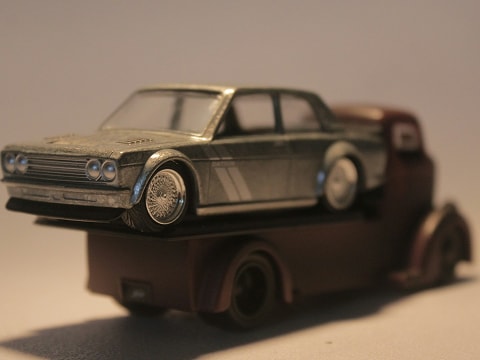
âUnderstanding how to prepare a car for trade-in and when or when not to trade in your car is essential to getting the best deal. At Huffines Hyundai in Plano, Texas, we've compiled some savvy car trade-in tips to help you avoid common errors and get the best deal on your used vehicle. Here's what not to do when trading in a car.
Essential Mistakes To Avoid When Trading In Your Car
Trading in a vehicle isn't as tricky as it seems, but there are a few things that can make the process more complicated than it needs to be.
Overlooking Your Car's Current Market Value
It's important to have an idea of your vehicle's market value before you go to make a trade. This is determined by several factors, including the trim level and packages, condition, accident history, service history, open recalls, usage, and more.
Consider the seasonality of your sale and get rid of a convertible or sports car in summer, saving all-wheel-drive vehicles for winter sales. Your location also plays a role. SUVs and rugged trucks may have a higher value in a rural setting, while a compact car with good gas mileage may get more money in an urban area.
You can easily get an estimated market value for your vehicle online. Check the mileage, note the vehicle identification number on the windshield, and input the year, make, model, and trim to get the number you're looking for.
Failing To Compare Trade-In Offers
You can get multiple offers for your vehicle online in just a few clicks. Don't head to the dealership to make a trade without comparing at least three other offers. Kelley Blue Book, CarMax, and Edmunds are all good places to start.
Combining Trade-In and New Purchase Offers
It may seem simpler to package your trade-in and new car purchase in one streamlined transaction, but this isn't the best option financially. Negotiate your trade-in first so you can focus on getting the best price. Get the final offer in writing before you shop for your new car so you can lock in that price for your future trade.
Ignoring Cosmetic and Minor Repairs
You'll get the best value on a clean, well-maintained vehicle. You may not see the benefit of vacuuming or changing a headlight on something you're about to trade in, but small investments in time and money can pay big dividends when it comes to the final valuation.
Providing Incomplete Documentation
You'll find it harder to offload a vehicle without a complete history report. It's imperative that you produce as much information as possible on the car's service history, accident history, previous owners, and known issues. Failure to disclose important details can lead to legal repercussions down the road, endangering more than just your trade. Gather all the pertinent information in advance and take it with you at the time of the trade.
You'll also need some basic paperwork. If you forget any of these documents, you won't be able to complete the deal. Make sure to take your:
- Vehicle registration
- Driver's license
- Car title
- Payoff letter for any auto loan
Misjudging Timing and Market Demand
Timing a vehicle trade-in requires careful consideration. You should always wait until the vehicle's book value exceeds the loan payoff amount. If you owe more than your car is worth, you'll lose money on a trade. The loss transfers to your next vehicle purchase, and you can quickly find yourself in a deep hole. If your vehicle's value exceeds the balance on your loan (or better yet, your loan is paid off entirely), you can proceed, but you should consider the following factors.
Trading In During High Depreciation Periods
New vehicles experience the steepest depreciation during their first five years on the road. As soon as you drive off the lot, your new car loses over 15% of its value. Over the following year, its value drops another 18%. In year two, you lose over 15%, and in year three, the value drops by 12%. Year four is a popular time for a trade-in because you've enjoyed the vehicle for some of its newest years, but you haven't yet leveled out on depreciation. You want to make your trade while the vehicle still holds its value well.
Ignoring Potential Tax Benefits
As mentioned, you should secure a trade-in offer before negotiating a new car purchase. However, this doesn't mean that you should complete both transactions separately. Hold onto your offer and cash it in as you're buying your next vehicle. This lets you take the value of your trade directly off the purchase price of your new car. In doing so, you can avoid paying sales tax on that amount.
Final Steps To Achieve the Best Trade-In Outcome
Now that you know when not to trade in your car and what it's really worth, it's time to complete your trade.
Presenting Your Car for Appraisal
While you can get online offers for your vehicle, you need to present it for appraisal in person to seal the deal. The purchaser will verify the condition, mileage, and other details. It never pays to falsify these details on your quotes because the final appraisal will reveal inconsistencies.
Closing the Deal With Confidence
Go into the trade-in process with solid background knowledge and plenty of confidence. If you can't get the deal you know you deserve, don't hesitate to walk away.
Find Your Next Vehicle at Huffines Hyundai Plano
Going into your trade well-informed will help you make the best deal at the right time. If you're ready to trade in your vehicle and find your next ride, consult our team at Huffines Hyundai Plano. Our finance department can guide you through every step of the process and help you execute a great deal on your next car purchase.

